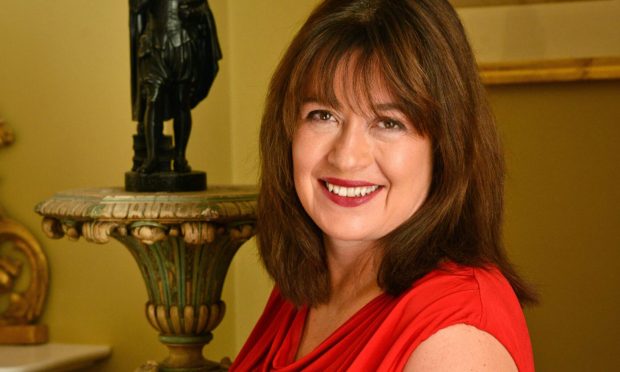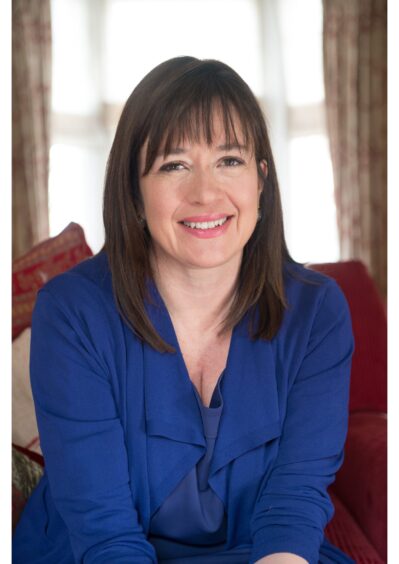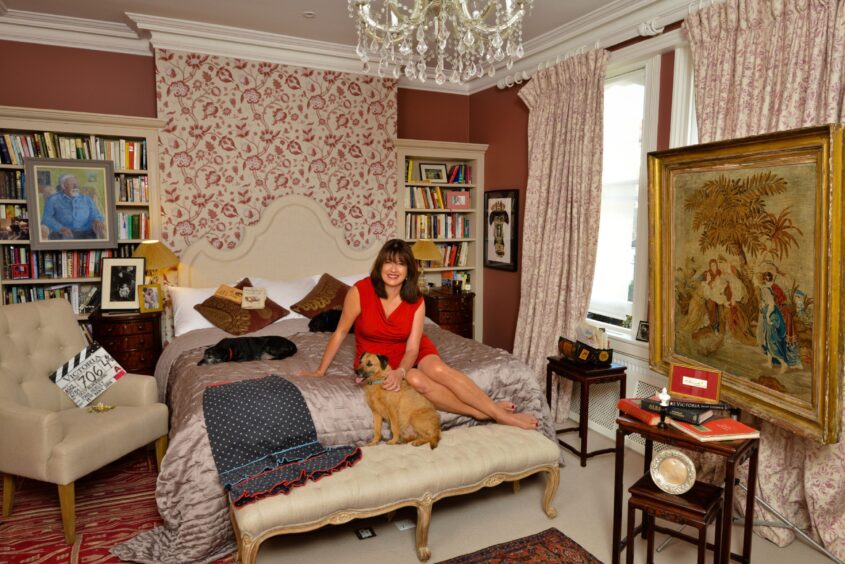
Daisy Goodwin is enjoying a “second adolescence”. She’s 62, her grown-up daughters have left home, and the world, once again, is her oyster.
It’s tempting to see Daisy like every other sixtysomething empty-nester. But that would be wrong. And although you may not immediately recognise her picture, you will likely know her work.
Daisy is the creator of Channel 4’s Grand Designs and the hit ITV drama Victoria. She has also penned three best-selling novels including Victoria, the book that changed the popular view of the young queen.
Daughter of film producer Richard B Goodwin, and the late journalist, author and interiors guru Jocasta Innes, the young Daisy would often come home from school to find Hollywood greats like Elizabeth Taylor and Lauren Bacall on the family sofa.
Having early in her screenwriting and producing career faced misogyny and sexism, she knows what it takes to not only survive but succeed in the industry. So, it’s little surprise she hit headlines after revealing she was groped at 10 Downing Street in 2012 while on a business visit, later naming the man accused of grabbing her breast, the then Tory candidate for London Mayor Daniel Korski, who subsequently withdrew his candidacy while refuting her claims.
Daisy is a champion of women “monstered” for valuing their worth and for refusing to “play nice”. And her latest novel, Diva – taken from the life of Maria Callas, the woman lauded as world’s greatest opera singer – is testament to the fact. She reveals: “To this day, Maria Callas is Warner Music’s bestselling classical artist. What I love about her is that, unlike her contemporaries, Marilyn Monroe and Judy Garland, she never doubted her own worth.
“When the Vienna Opera invited her to sing, she asked for a fee that equalled that of its musical director. She was one of the first women in the public eye to be “monstered” as she refused to play nice. She had no studio system to protect her, and her entire career was predicated on her as the Diva, capricious and unreasonable, who would disappoint opera companies and audiences seemingly on a whim.”
Callas – who was the mistress of shipping magnate Aristotle Onassis before he left her to marry President Kennedy’s widow, Jackie – was, says Daisy, “a musical genius who lived in a cauldron of celebrity not of her own making. She wanted recognition, but for her art, not for being the woman at the side of the world’s richest man.
“She was put through the most appalling kind of interviews where they would ask her about her love life, and not her career. This was the 1950s and they were the sort of interviews Britney Spears is put through today. If a tenor tried to grope her on stage, which they often did, she’d call them out on it. She was an incredible warrior.”
Callas – who died in 1977 – disappointed Edinburgh opera fans in 1957 on her only visit to Scotland after she sang in just four of the five billed performances of La Sonnambula. But contrary to popular belief, the decision was the result of a contractual discrepancy and sickness, not of a whim.
“I got very angry at the way she’d been treated and the way she is still somehow portrayed as a diva,” says Daisy.
Callas, she believes, has relevance for young women today who have never heard her sing: “How do strong women speak their mind without being labelled divas and why is it that women of genius are still judged by different standards to men?”
Daisy attended the all-boys Westminster School when it opened to sixth form girls in the 1970s, before going on to Cambridge University and the Columbia Film School. She joined the BBC in 1985 as a trainee. She remembers: “When I was younger, people just assumed I was sleeping with whoever I was working for. They would put down your success to the fact that you’d had some man to promote you.
“What was more pernicious was the man at the BBC who had slept with seven women in an office of 10,” she claims. “I refused to be the eighth and I was let go shortly after. I find that unforgiveable. It makes me so angry. I let my sex down by not complaining but I thought I just had to get through it and show them I was tough enough to deal with it. It would have been very hard to complain.
“I had been to a pretty much all-male school and had grown up dealing with banter, so I was able, to some extent, to laugh it off. But not having my contract renewed was hard.”
In 1998, she moved to Talkback Productions as head of factual programmes. In 2005, she founded Silver River Productions, which was sold to Sony in 2011. Her first novel, My Last Duchess, was published in the UK in 2010.
“At Talkback I was in a position of authority, I didn’t have those problems,” she says. “As I got older and proved what I could do, it all got better. Then I ran my own company, and it wasn’t an issue. In 2012 I went to No 10 and got groped by this guy. Of all the places that you would not expect to be molested, Downing Street would come pretty high on the list. I felt humiliated but it didn’t affect my life from then on.”
She says it was her experience at the BBC, the #MeToo campaign, and the news that her alleged abuser was in the running to become London’s mayor that compelled her to lift the lid on the incident and go on to name him.
Daisy has come a long way from the warehouse in London’s Rotherhithe where as a child she “lived above shop” with her film producer father and brother Jason and star gazed.
She remembers: “It’s where the wardrobe was as well. I would come home from school and there would be some actor there. I once came home to Mia Farrow, but I didn’t recognise her. I met Bette Davis, Elizabeth Taylor, Ingrid Bergman, Lauren Bacall, all these Hollywood greats. I also met Sean Connery, Vanessa Redgrave and Jane Birkin. They would come for their fittings and then my dad would say, ‘Stay for supper’. So we would have these bizarre evenings.”
She is now working on a novel inspired by her Scottish forebears, The Traills, and planning to visit Scotland soon. Her mother would be proud. She recalls: “My mother was very creative and a wonderful writer. She died 11 years ago but my father is very much with us and is my greatest fan.
“I still pinch myself when people ask what I do, and I call myself a writer. I still feel like a bit of an imposter. That’s why I like Maria Callas as she didn’t do that. There is a quote from Maria that says, ‘I am as difficult as I need to be to achieve perfection’. No man would have to justify himself like that. I think young women today are taking a leaf out of Callas’s book. The Taylor Swifts of this world know their worth, and we want more of them.”
Otterlie and Lydia, her daughters, are no exception. “I’ve done my best to bring my girls up to know their own worth and they are fearless young women. They’ve left home, and I have this weird thing of being footloose and fancy-free,” she grins. “It’s like a second adolescence – without the energy.”
Diva, by Daisy Goodwin is published by Head of Zeus.

Enjoy the convenience of having The Sunday Post delivered as a digital ePaper straight to your smartphone, tablet or computer.
Subscribe for only £5.49 a month and enjoy all the benefits of the printed paper as a digital replica.
Subscribe
 © Mike Lawn/Shutterstock
© Mike Lawn/Shutterstock